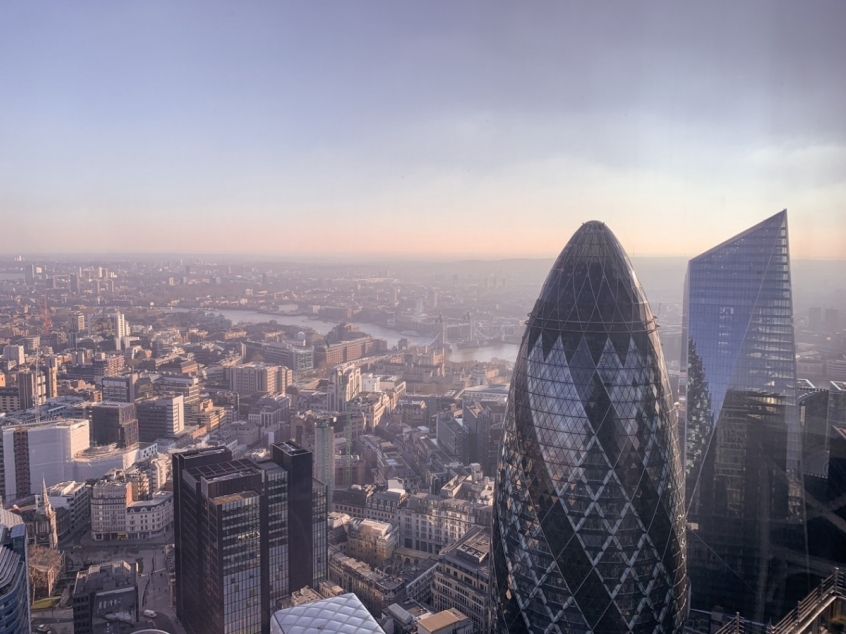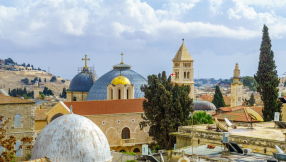
London is more religious than the rest of the country, according to a new report published by the think tank Theos.
The report 'Religious London' released this week, shows that Londoners are significantly more religious than people living elsewhere in Britain, and the capital's Christians are far more ethnically diverse.
The polling, conducted for Theos by Savanta ComRes, shows that:
- most Londoners are religious (62 per cent identify as religious compared to 53 per cent across the rest of Britain outside London)
- Religious Londoners were 48 per cent BAME (Black, Asian, minority ethnic) compared with just 27 per cent of non-religious Londoners.
- Christianity in particular was significantly more ethnically diverse in the capital - 31 per cent of Christians in London are BAME compared with just two per cent across the rest of Britain outside London.
Theos also identifies further insights around the nature of religious practice, finding that Londoners are more intensely practising, more likely to pray, and more likely to attend a religious service than those outside the capital.
- One in four Londoners attend a religious service at least once a month compared with 1 in 10 in the rest of Britain outside London.
- Religious Londoners are twice as likely as religious people in other parts of the country to attend a service twice a month or more (31 per cent vs 15 per cent)
- 56 per cent of London Christians pray regularly compared to 32 per cent of Christians in the rest of Britain.
Christian Londoners are also more likely to say that they will donate to a charitable initiative than non-religious Londoners (76 per cent vs. 68 per cent); that they would help their neighbours with a simple task than non-religious Londoners (92 per cent vs. 86 per cent); and half of Christians (49 per cent) and non-Christian religious adults (53 per cent) say that they are likely to volunteer regularly for a local charitable initiative, compared to 40 per cent of non-religious Londoners.
The report argues that London's leaders and policy makers should take greater account of religious communities and their significant role in providing social welfare across the capital.
More than 130 people took part in the report's launch this week via Zoom. Lewisham East MP Janet Daby, shadow minister for faith, called on religious groups to be more involved in politics, and for politicians to understand better the role played by faith communities in the capital's life.
Professor Tony Travers, of the London School of Economics, said that politicians were unsure how to handle religion and advised religious groups to be involved in political debate without being party political.
Mustafa Field, director of the Faiths Forum for London, described religious communities as "engines for social good" and said faith leaders could make positive contributions to public life an debate.
The report's author, Paul Bickley, a research fellow at Theos, explained the findings which also pointed towards Londoners holding more socially conservative views than the rest of Britain. For example, Londoners are:
- nearly twice as likely to say that sex before marriage is at least sometimes wrong compared to the rest of Britain (24 per cent vs 13 per cent)
- more likely to say that same-sex relationships are at least sometimes wrong compared to the rest of Britain (29 per cent vs 23 per cent)
- more likely to say that assisted suicide in the case of an incurable illness is at least sometimes wrong compared to the rest of Britain (38 per cent vs 27 per cent).
Theos director Elizabeth Oldfield said: "When we think about London, we might think about the global city with a reputation for progressive politics. But this is only half the story. London is also a city of surprises.
"This polling shows that London is in fact more socially conservative than the rest of the country. There is no doubt religion has an impact on this. Religious Londoners drive more conservative social views, even when those views are held by a minority of Londoners overall.
"The great success story of London has been its ability to welcome and accommodate opinions from across the political spectrum. The city still has the capacity to shock us – and this is one of the things which makes London one of the most dynamic, complex and interesting cities in the world."













